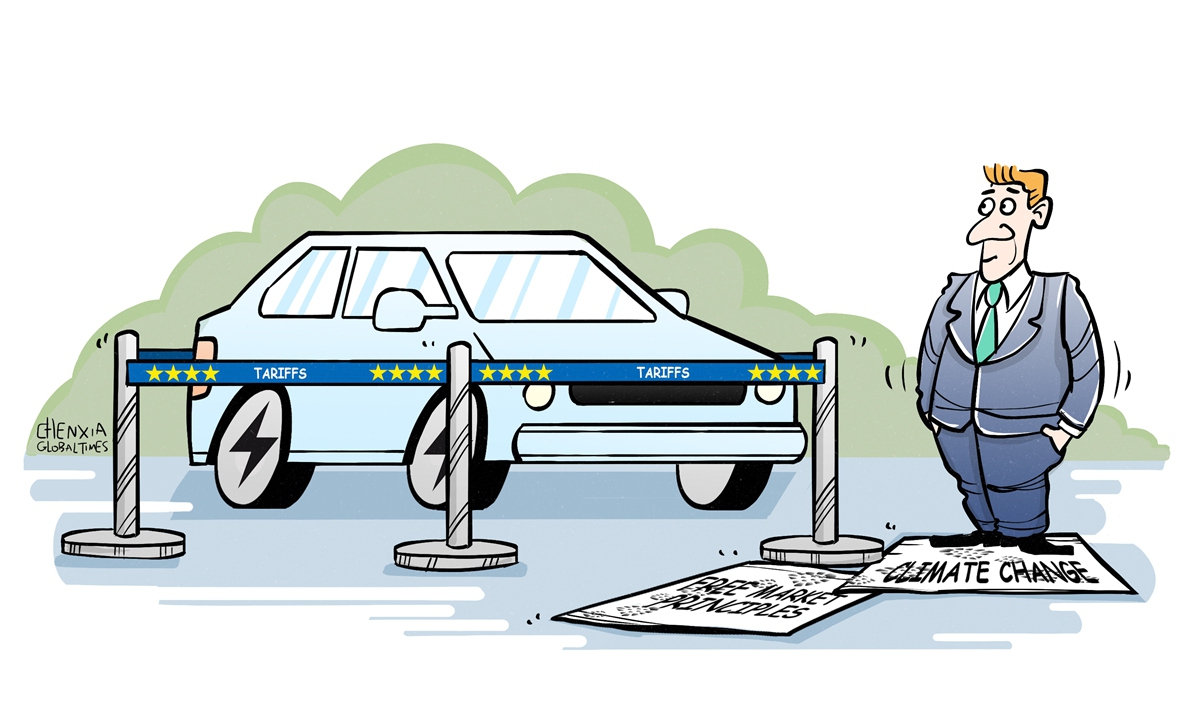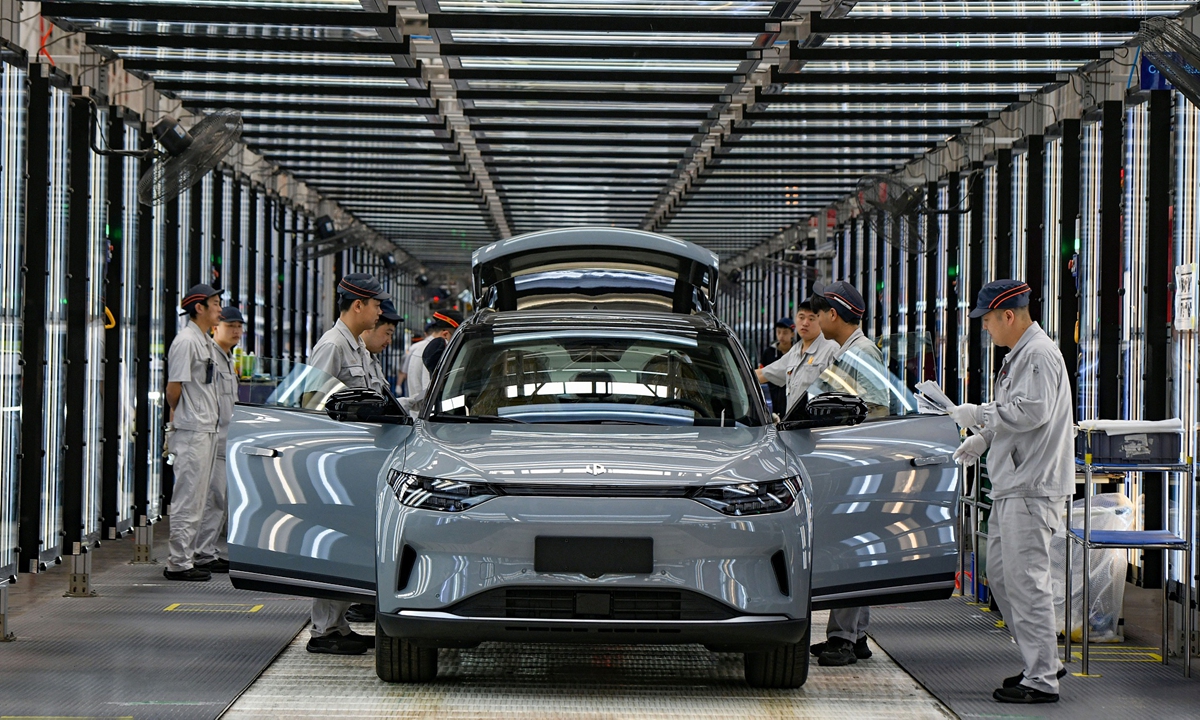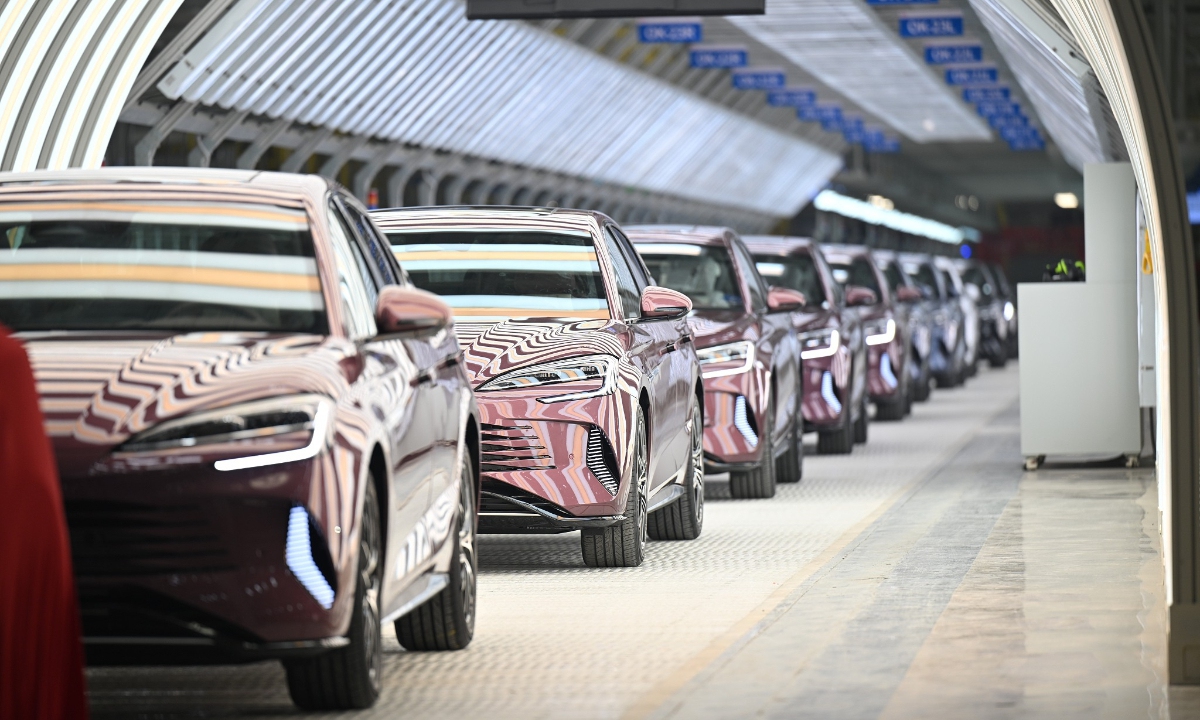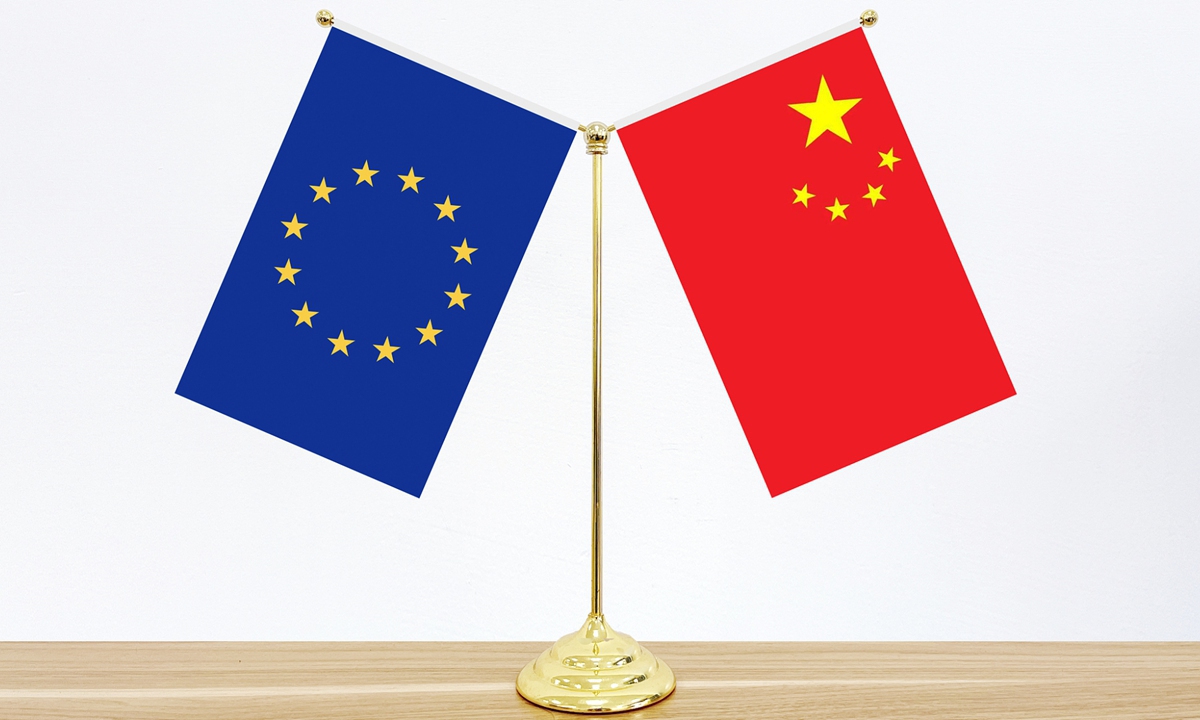China-EU talks on EV tariffs won’t be easy, but important for de-escalation of trade tensions

Illustration: Chen Xia/GT
Recently, the EU's announcement of a plan to impose unreasonable tariffs on Chinese electric vehicles has attracted public attention. China's Ministry of Commerce (MOFCOM) announced on June 22 that China and the EU will start negotiations on the EU's anti-subsidy investigations into Chinese EVs.The working teams of both sides are currently maintaining close communication and the negotiation is on-going, He Yadong, a spokesperson for MOFCOM, stated at a regular press conference on Thursday.
It is hoped that the EU and China will work together to quickly make positive progress in their negotiations and reach a solution acceptable to both sides, in order to avoid the negative impact of escalating trade tensions on China-EU economic and trade relations.
On September 13, 2023, European Commission President von der Leyen announced in her State of the Union Address that the EU was launching an anti-subsidy investigation into the EVs exported from China to Europe. The investigation officially started on October 4 last year.
On June 12, 2024, the EU revealed the rates of anti-subsidy tariffs on Chinese EVs exported to Europe. According to EU regulations, temporary tariffs should be announced within nine months of the opening of an investigation, and all procedures should be completed and official tariffs should be made public within 13 months. Therefore, the official tariffs should be implemented no later than November 2.
First, the EU's imposition of tariffs on EVs from China is out of protectionism rather than fair market competition.
The EU initiated an anti-subsidy investigation against Chinese EVs using the so-called ex officio method rather than based on complaints from companies. The EU has made a preliminary ruling on the tariff level, indicating that it is proceeding step by step with the anti-subsidy investigation against Chinese EVs.
However, the investigation conducted based on EU regulations has strong political implications, with the deliberate intention to suppress the development of China's EV industry and prevent China-made EVs into the EU market.
The EU did not follow the accepted practice of initiating investigations based on complaints from companies, which goes against the principles of fair market development. The EU disregarded the opposing views of many business entities in countries such as Germany and the Netherlands, and insisted on pushing forward with the investigation.
This indicates that the EU's anti-subsidy investigation against China and the imposition of tariffs do not fully adhere to market realities and trade norms, but are aimed at suppressing Chinese EV companies, with strong political and protectionist implications.
Second, economic and trade negotiations are the most important means to resolve the current economic and trade tensions between China and Europe, but it is not possible to achieve results overnight.
The above-mentioned measures by EU have sparked serious economic and trade tensions between China and Europe. In order to prevent tariff tensions from escalating, both sides quickly agreed to start negotiations.
However, this will not be an easy negotiation, as the talks will not only involve the level of tariffs on Chinese EVs exported to Europe.
From the perspective of EU law, the EU anti-subsidy investigation process has established procedures, and it will progress in sequence without strong external intervention. The EU has set deadlines and procedures from the pre-disclosure or preliminary ruling of the current tariff level to the publication of provisional measures, and to the publication of definitive measures.
Although the China-EU economic and trade negotiations are challenging and highly complex, this is the best way to prevent economic and trade tensions caused by the EU's unreasonable EV tariffs from escalating.
A bright future for China-EU economic and trade relations lies in closer cooperation. Given the increasingly fierce competition between China and the EU, the EU may impose more trade restrictions and improper tariffs on China's competitive products out of protectionism. The consequences will not only discriminate against Chinese products hinder the healthy development of China-EU economic and trade relations, but also disrupt international import and export market order, and ultimately harm the prosperity of Europe.
To address the increasingly fierce economic and trade competition, China and the EU should bind their respective industrial chains more closely together, strengthen and expand the market through mutual integration, achieve mutual benefit and integration, avoid vicious competition and unilateral suppression, and truly achieve the best way for China and the EU to share interests and prosperity.
To improve China-EU economic and trade relations, China should respond to the EU's unfair trade practices toward China, including conducting anti-dumping investigations on pork and European brandy exports to China, reasonably correcting the EU's improper economic behavior, in order to achieve healthy, stable, and sustainable development of China-EU economic and trade relations.
The author is a deputy director of the Center for China-Europe Relations, Fudan University, and Under-Secretary General of Shanghai Institute for European Studies. bizopinion@globaltimes.com.cn



